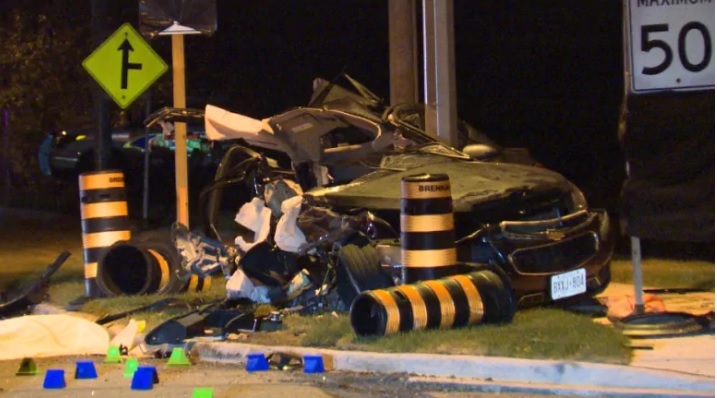We’ve all seen it, we all know it when we see it, and we’ve all most certainly wondered just how downright stupid our species can so often be.
For most of us, witnessing the insanity of drunken driving, is something we experience (hopefully) just in passing.
Anecdotal.
Until it isn’t: until the time when somebody we know or love is involved in a fatal accident that has alcohol at its root.

A woman, 21, died in this crash in Richmond Hill, Ont. in August, 2018. A Toronto driver, also 21, was charged with impaired driving causing death, impaired driving causing bodily harm, dangerous driving causing death, dangerous driving causing bodily harm and refusing to provide a breath sample. (Tony Smyth/CBC)
Still, there is cause for hope that eventually we’ll get it right.
In fact, it appears that a great many of us are actually wising up.
For instance, in 2016, the most recent year for which data is available, 480 Canadians were killed in road crashes involving a drinking driver.
Horrible!
But that was a 55 per cent decrease from the 1,057 people killed in 1995, according to Traffic Injury Research Foundation, which has released the results of its annual investigation into drinking and driving in Canada.
More good news: In 2016, the percentage of persons killed in a crash on a public roadway involving a drinking driver in Canada was 28.8 per cent–down from a peak of 37.3 per cent in 1995.

Montreal police trying to keep an eye on things in December 2018. In 2016, the last year for which data is available, 480 Canadians were killed in road crashes involving a drinking driver. (Radio-Canada)
But an uptick in negative statistics–especially in the percentage of people admitting to drinking and driving when they thought they were over the legal limit–has the road safety watchdog wondering if progress to reduce drinking and driving in Canada “may have stalled.”
For a look at the 2019 survey and an overall perspective on drinking and driving in Canada and what the future may–or may not–hold, I spoke by phone today with Steve Brown, one of the authors of the TIRF study.
ListenWith files from CTV (Cillian O’Brien), Traffic Injury Research Foundation,







For reasons beyond our control, and for an undetermined period of time, our comment section is now closed. However, our social networks remain open to your contributions.